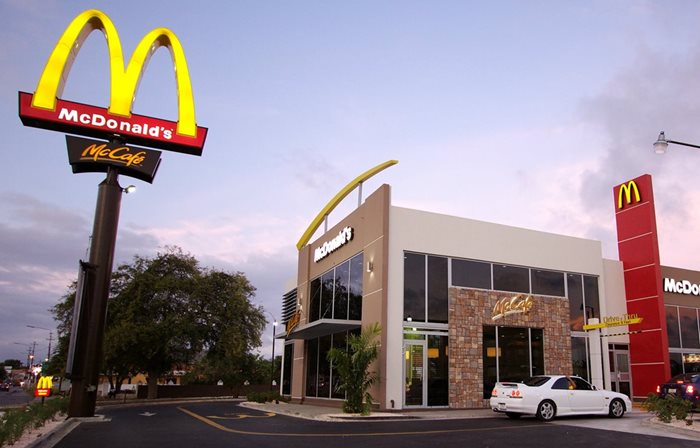McDonald’s seeks to keep pace with ‘changing customer expectations’ as coffee becomes key growth area for fast food giant's UK business

McDonald’s has revealed coffee drinkers are its most frequent customers as it trials a barista service at two London sites. The improved coffee offer at its St Paul’s and Oxford Street sites marks a new phase of development in fast food chain's McCafé concept, which has proved popular with UK consumers since launching in 2013.
“Coffee has been a key driver of sales and guest count growth,” said McDonald's UK and Ireland chief executive Paul Pomroy.
“Barista coffee is outperforming projections, so we will soon be expanding our trial to restaurants in the East Midlands,” he added.
The global fast food giant has targeted branded coffee chain market share in the last 12 months with national advertising focusing on quality and value. McCafé offers 100% arabica coffee-based beverages at a lower price point than any other major coffee shop chain on the UK high street.
All of 1,270 McDonald’s UK branches offer a range of McCafé coffee beverages, however, unlike other European markets, the fast chain has yet to launch any standalone McCafé stores in the UK.
Its closest fast food rival, KFC, offers Starbucks Seattle’s Best Coffee across 890 UK sites, while Burger King has a café-style offer at select stores. However, Allegra research indicates that none are considered by consumers to offer a coffee shop experience sufficient to challenge established UK high street chains.
The latest McCafé development is a further demonstration of rising premiumisation across the UK coffee shop market by increasingly well-regarded non-specialist operators. McCafé appears to be gaining traction among UK consumers, with Allegra research showing the brand achieving high levels of awareness, behind only market leaders, Costa Coffee, Starbucks and Caffé Nero.
McDonald’s global sales were up 4% in the second quarter, with the like-for-like sales up across all UK regions. Sales growth in the UK and France has, however, offset disappointing results in the US, where revenues have dropped 12% from $6bn to $5.4bn in the last year.